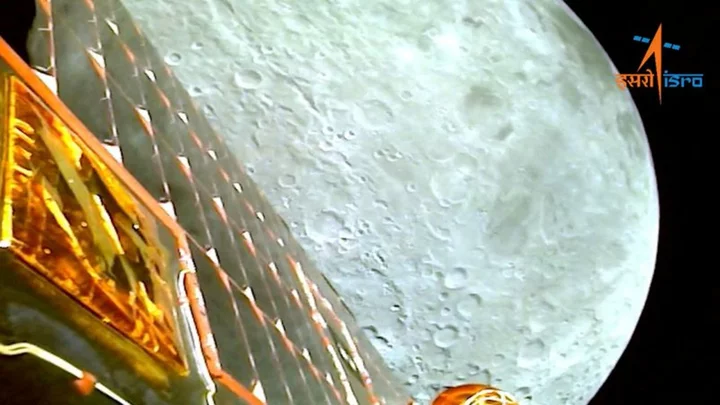
Mission accomplished, India puts moon rover to 'sleep'
By Arpan Chaturvedi NEW DELHI India switched off its moon rover, the first craft to reach the lunar
1970-01-01 08:00
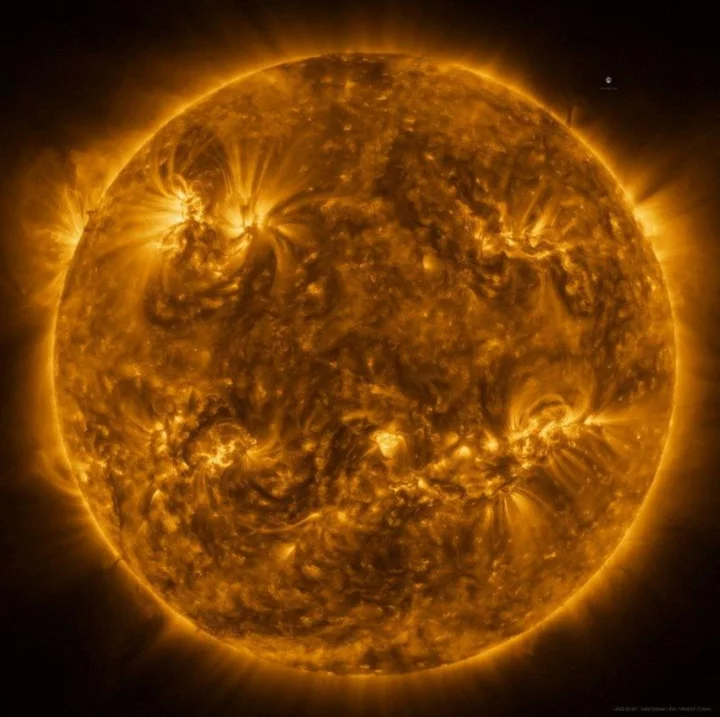
After the moon, India sets sights on studying the sun with rocket mission
By Nivedita Bhattacharjee BENGALURU Following up on the success of India's moon landing with the Chandrayaan-3, the country's
1970-01-01 08:00
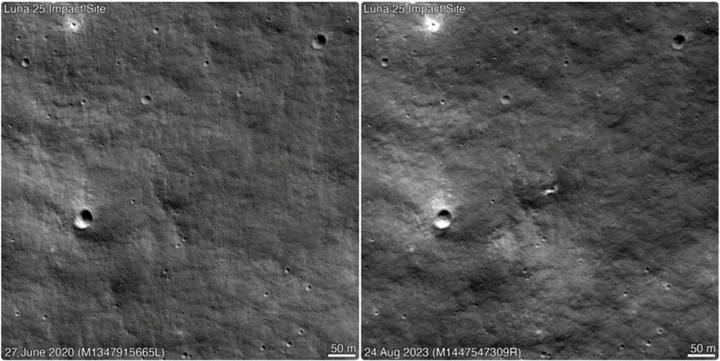
Crashed Russian mission left a crater on the moon, NASA images show
MOSCOW Russia's failed Luna-25 mission left a 10-metre wide crater on the moon when it crashed last month
1970-01-01 08:00
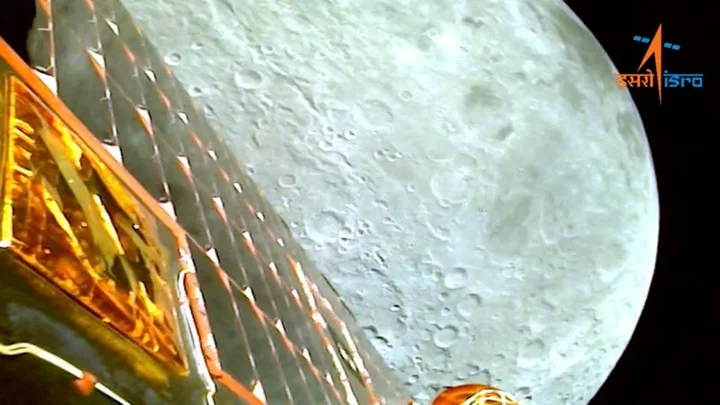
Factbox-After Chandrayaan-3: India's upcoming and past space missions
BENGALURU India is set to launch its next space venture, a mission to study the sun and its
1970-01-01 08:00
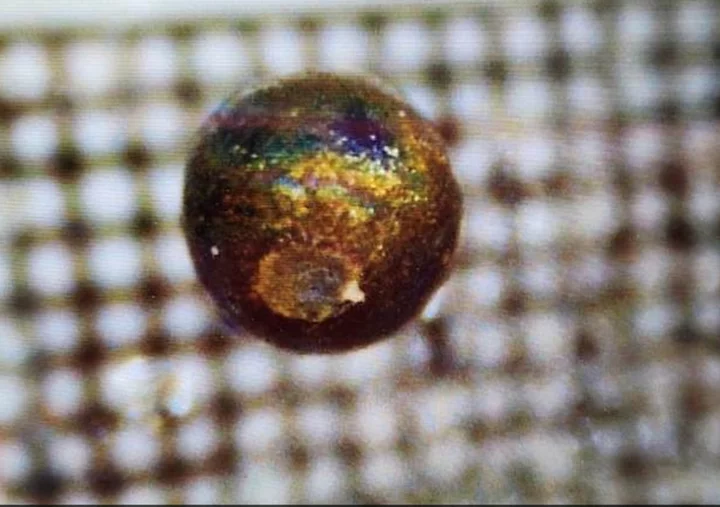
Scientists have found materials in the sea from outside Solar System, controversial Harvard professor claims
Scientists have found material from outside of our solar system for the first ever time, according to a controversial Harvard Professor. The “spheres” were found in the Pacific Ocean in June. But early analysis has now indicated that the material came from outside of our solar system, carried by an interstellar object that crashed into the Earth in 2014, according to Avi Loeb, a theoretical astrophysicist at Harvard University. The material could even be of “extraterrestrial technological origin” because of some unusual characteristics of the material, he said. Professor Loeb has previously claimed that the asteroid may have been artificial, such as an alien spacecraft. “This is a historic discovery because it represents the first time that scientists analyze materials from a large object that arrived to Earth from outside the solar system,” Professor Loeb wrote in his announcement. Professor Loeb has made a number of claims about potential extraterrestrial life and visitors from other solar systems. While has made a number of contributions to astrophysics, he is perhaps best known for his suggestions that Oumuamua, the first interstellar object to visit our solar system, could have been an “alien probe”. His regular and often unusual claims have led to some censure from fellow scientists, who say that he is given to sensationalism and is damaging the usual process of discovery. His pronouncements can be attention-grabbing and undermine the usual work of science to check extraordinary claims with extraordinary evidence, they have said. “People are sick of hearing about Avi Loeb’s wild claims,” Steve Desch, an astrophysicist at Arizona State University, told The New York Times in July, when Professor Loeb revealed details of his search. “It’s polluting good science — conflating the good science we do with this ridiculous sensationalism and sucking all the oxygen out of the room.” Professor Loeb made the most recent claims on Medium, where he has been documenting his trip to the Pacific Ocean to collect materials. In recent years he has been taken with a fireball that fell to Earth in 2014 – and has been looking to collect any fragments from it. He has claimed that details about the fireball indicate that it had come from outside of our solar system. Those claims have proven controversial – though they have been accepted for publication in the prestigious Astrophysical Journal, after initially being rejected – because scientists have argued there is not significant enough proof to indicate it really was an interstellar visitor. Nonetheless, in recent months Professor Loeb and his team have been scouring the Pacific Ocean for any fragments from that object, and in June they announced that they had successfully gathered some examples. Those samples have since undergone testing by scientists. Now Professor Loeb says that analysis shows that the materials are “from a meter-size object that originated from outside the solar system”. A number of details about the material indicated that it was of interstellar origin, he said. He pointed particularly to the amount of beryllium, lanthanum and uranium (or BeLaU) in the objects. That set them apart from other samples not found in the path of the object – and also from objects that would normally be expected to have been formed on the Earth, the Moon or Mars, he said. Professor Loeb said he he was confident that more objects would be found like “IM1”, the name he has given to that object he claimed to be an interstellar visitor. He suggested that there could be “a few million such objects reside within the orbit of the Earth around the Sun at any given time” and that “some of them may represent technological space trash from other civilizations”. He also criticised those many scientists who have expressed scepticism about his claims, joking that he was “running away from colleagues who have strong opinions without seeking evidence, and I am running towards a higher intelligence in interstellar space” and saying that he wishes his critics “happiness and prosperity”. Read More We just received the first ever pictures taken near the Moon’s uncharted south pole Rare blue supermoon brightens the night sky this week India set to launch spacecraft to Sun after successful moon landing Rare blue supermoon brightens the night sky this week India set to launch spacecraft to Sun after successful moon landing Japan forced to suspend launch of historic first Moon lander
1970-01-01 08:00
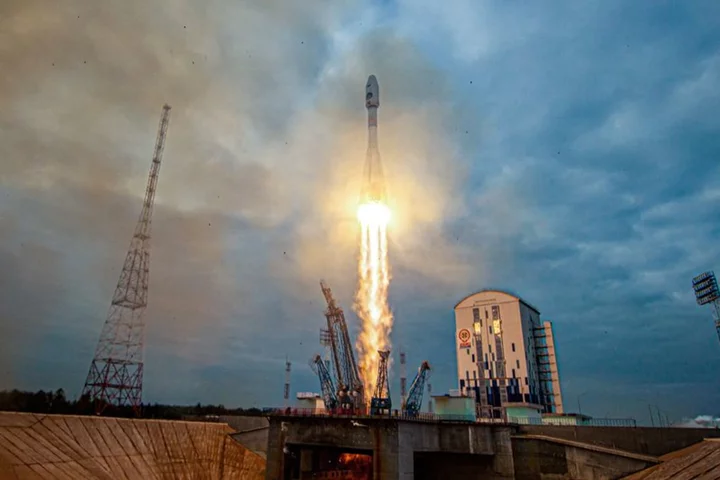
Kremlin plays down moon landing failure, says space programme will continue
MOSCOW (Reuters) -The Kremlin on Tuesday said that the failure of Russia's Luna-25 mission to the Moon earlier this month
1970-01-01 08:00
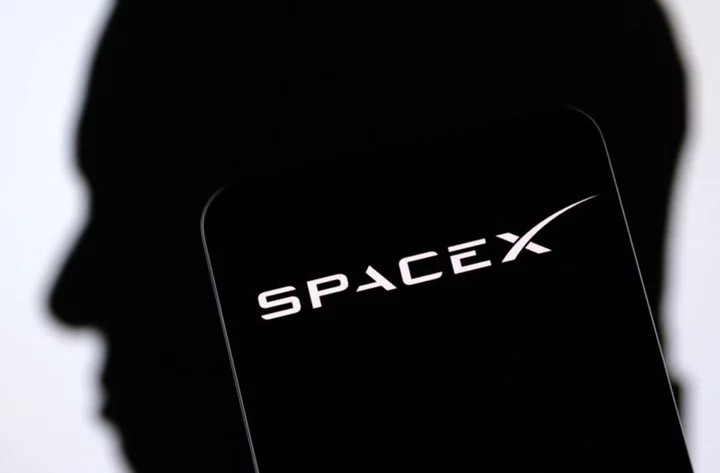
SpaceX lawsuit could be key test of US policy on bias against refugees
By Daniel Wiessner A new lawsuit accusing SpaceX of illegally refusing to hire asylum recipients and refugees could
1970-01-01 08:00

Virgin Galactic: Student Ana Mayers on going to space with her mum
Two weeks after she was in space with her mum, Ana Mayers is going back to university in Scotland.
1970-01-01 08:00
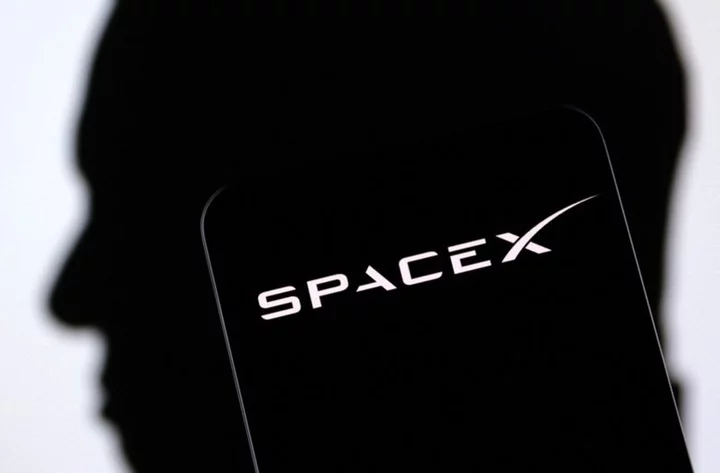
US sues SpaceX, alleges hiring discrimination against asylum seekers, refugees
By Kanishka Singh WASHINGTON (Reuters) -The U.S. Justice Department sued Elon Musk-owned rocket and satellite company SpaceX on Thursday for
1970-01-01 08:00

Mysterious ‘dark spot’ on Neptune seen from Earth for the first time
Scientists have seen one of the mysterious “dark spots” on Neptune from Earth for the first ever time. Researchers spotted the feature using the European Southern Observatory’s Very Large Telescope, or VLT. Using that telescope, astronomers were able to examine a large dark spot – which was joined by a smaller, bright spot, they said, of a kind that has never seen before. Scientists still do not know why those spots form on Neptune’s blue atmosphere. But they hope that the new observations could help answer questions about their origin. “Since the first discovery of a dark spot, I’ve always wondered what these short-lived and elusive dark features are,” said Patrick Irwin, professor at the University of Oxford and lead investigator of the study. It has already helped rule out one possibility: that the dark spots are caused when the clouds on the planet clear. The observations instead suggest that the spot is formed when air particles make a layer below the main one go darker, caused by ice and haze mixing in the atmosphere. Understanding the spots has been difficult because they leave the planet’s surface as mysteriously as they arise. They have also been difficult for researchers to actually examine, given the difficulty of spotting them through telescopes. Previously, scientists were forced to send spacecraft to see the spots, and the first was observed in 1989, when Nasa’s Voyager 2 flew past. It disappeared a few years later. In recent years, scientists have been able to examine them with the Hubble Space Telescope, which has seen more spots on the atmosphere. When it did so, astronomers were able to point ground-based telescopes towards them, allowing for more detailed research. “This is an astounding increase in humanity’s ability to observe the cosmos,” said Michael Wong, a researcher at the University of California, Berkeley and a co-author on the paper. “At first, we could only detect these spots by sending a spacecraft there, like Voyager. “Then we gained the ability to make them out remotely with Hubble. Finally, technology has advanced to enable this from the ground.” The new observations allowed scientists to examine the spot using the VLT’s Multi Unit Spectroscopic Explorer, which let them split the light from Neptune and the spot into its component colours. That in turn means that astronomers can understand the height at which the spot sits, and how the atmosphere is composed. As well as helping examine the dark spots, scientists also saw a surprise result: another, entirely new kind of bright spot. “In the process we discovered a rare deep bright cloud type that had never been identified before, even from space,” said Wong. The work is described in a new paper, ‘Cloud structure of dark spots and storms in Neptune’s atmosphere’, published in Nature Astronomy. Read More Mysterious dark spot on Neptune detected from Earth for the first time We just received the first ever pictures taken near the Moon’s uncharted south pole Chandrayaan-3 mission rover exits Moon lander to explore lunar south pole Mysterious dark spot on Neptune detected from Earth for the first time We just received the first ever pictures taken near the Moon’s uncharted south pole Chandrayaan-3 mission rover exits Moon lander to explore lunar south pole
1970-01-01 08:00

US House committee leader wants probe of space command HQ decision
WASHINGTON The chairman of the U.S. House of Representatives Armed Services Committee on Thursday said he has requested
1970-01-01 08:00
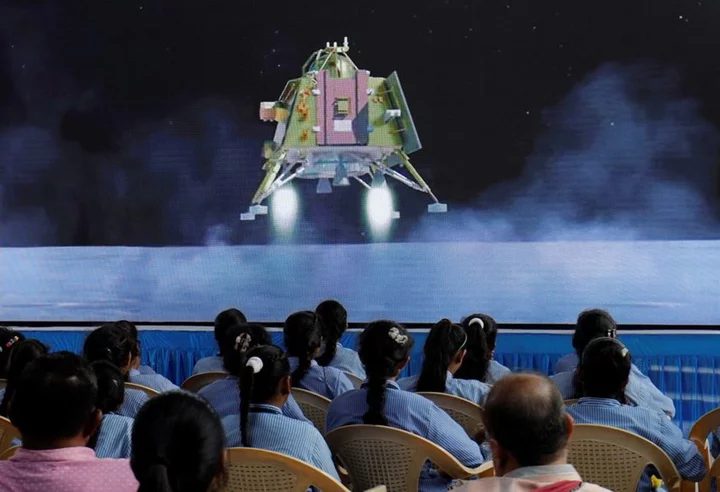
Chandrayaan-3 rover rolls onto moon's surface as ecstatic India celebrates
By YP Rajesh, Sakshi Dayal NEW DELHI (Reuters) -The moon rover of India's Chandrayaan-3 exited the spacecraft on Thursday to
1970-01-01 08:00
